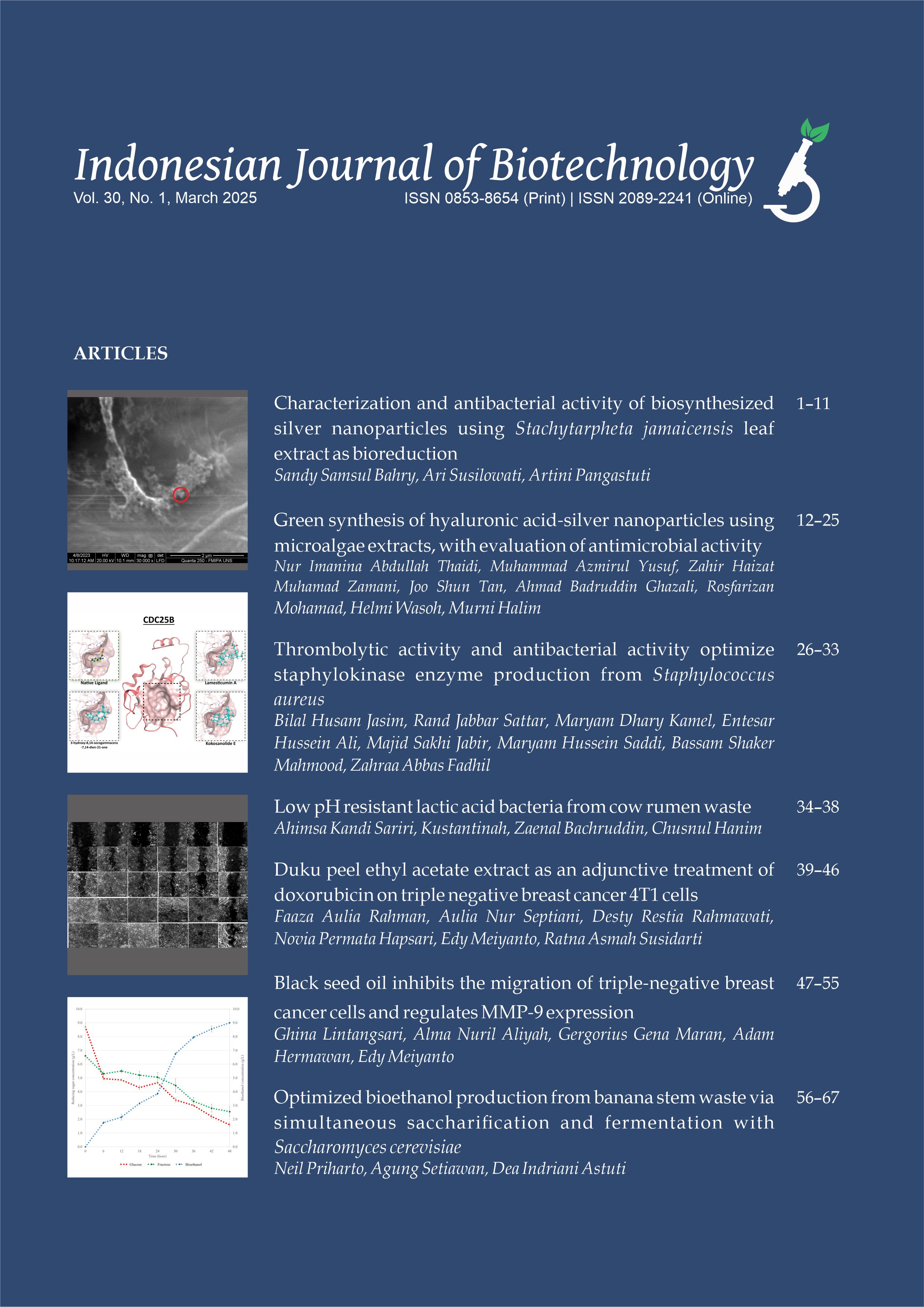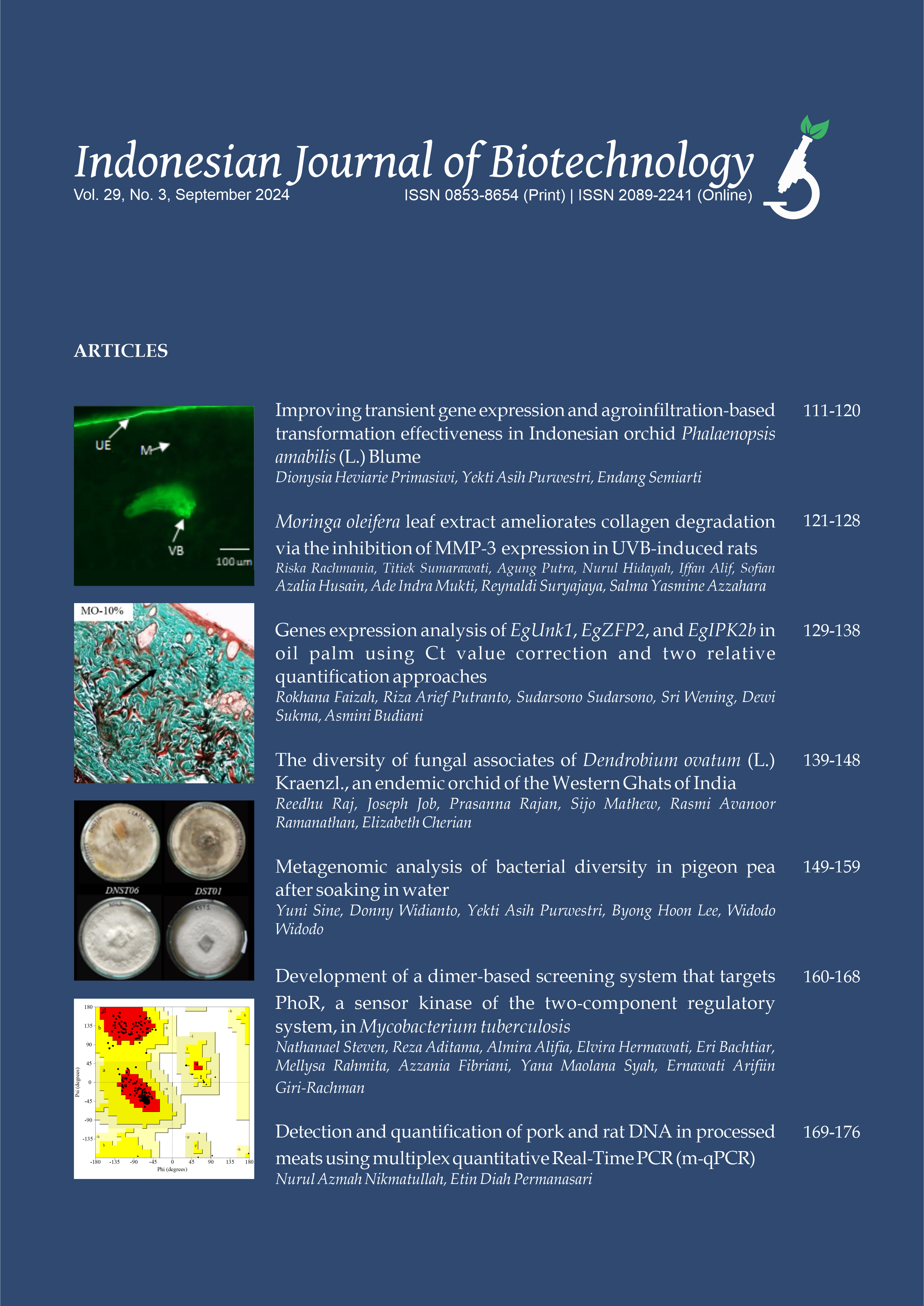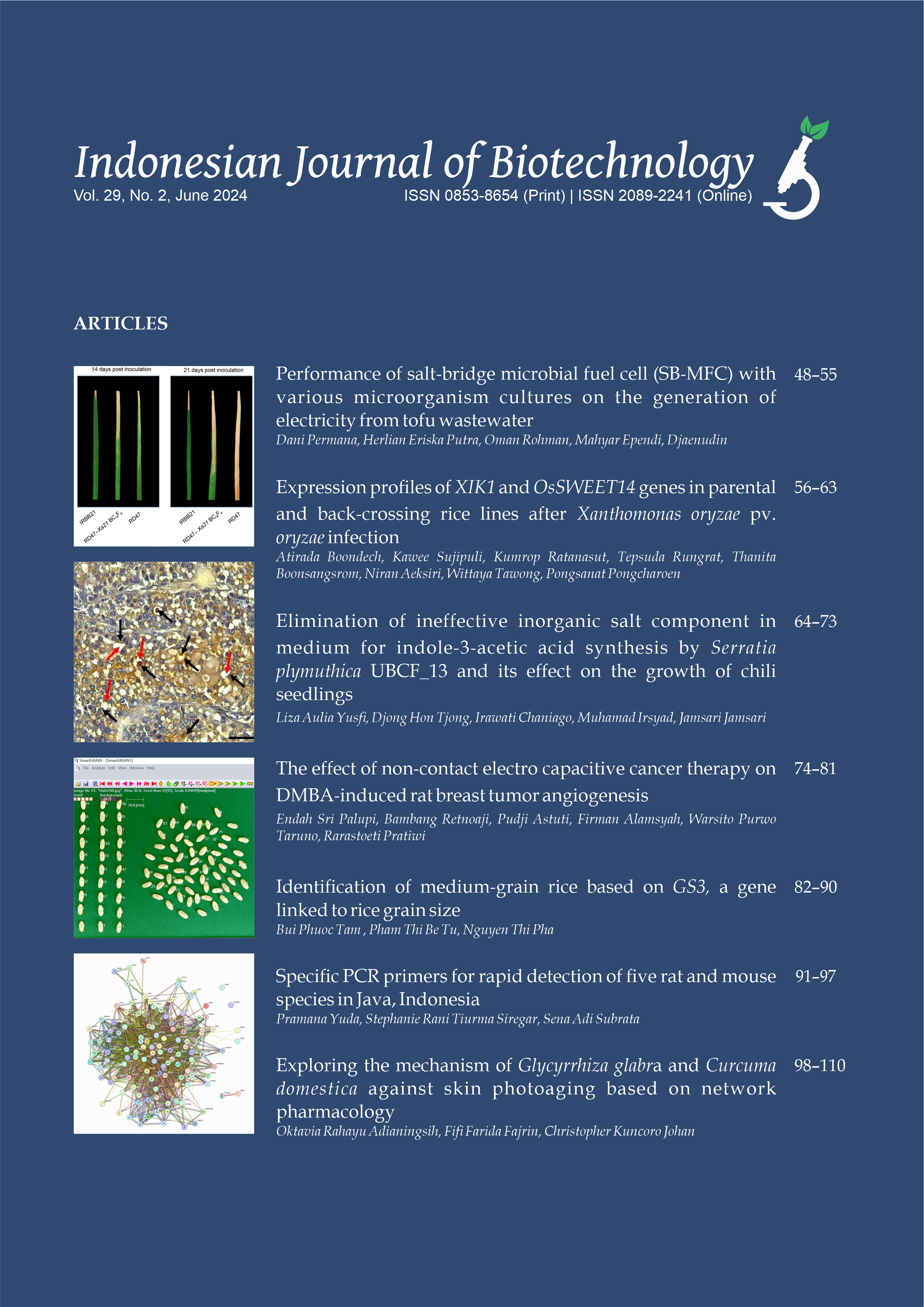T-786c Polymorphism in nitric oxide synthase 3 gene and Nitrit Oxide Level of Diabetic Retinopathy in Javanese Population
Putri Widelia Welkriana(1), S. Sunarti(2*), Pramudji Hastuti(3)
(1) Postgraduated Program of Basic and Biomedical Science, Faculty of Medicine, Universitas Gadjah Mada, Yogyakarta, Indonesia
(2) Department of Biochemistry, Faculty of Medicine, Universitas Gadjah Mada, Yogyakarta, Indonesia
(3) Department of Biochemistry, Faculty of Medicine, Universitas Gadjah Mada, Yogyakarta, Indonesia
(*) Corresponding Author
Abstract
Complication of retinopathy in type 2 DM is caused of lower level of NO. Nitric oxide level is synthesized
from L-arginin in reaction that catalyze Nitric oxide synthase (NOS) 3. The T-786C mutation in NOS 3 gene
decreases the expression of nitric oxide synthase (NOS) 3 so decreases NO synthesis. To investigate the
association between T-786C polymorphism in NOS 3 gene with NO level of diabetic retinopathy patients. This
study was a case control study, consist of 40 patient of type 2 diabetic with DR (case group) and 40 patient of
type 2 diabetic without DR (control group) of Javanese ethnic. The genotyping of T-786C polymorphism was
performed by PCR-RLFP. Level of NO was measured by spectrophotometry. Chi square test and odd ratio
were used to analyze the association of the T-786C polymorphism in NOS 3 gene with DR. Differences of
NO level between TT and TC genotypes were analyzed using independent t test. The distribution of T-786C
polymorphism in NOS 3 gene of DR subjects showed that frequency of TT genotype was 22.5% and TC genotype
was 77.5%. Non DR subjects showed the frequency of TT genotype was 50% and TC genotype was 50%, (p=
0.011). Frequency of T allele in DR group was 61.25% and C allele was 38.75%, and frequency of T allele in non
DR group was 75% and C allele was 25%, (p= 0.62). Odd ratio of TC genotype was 3.444(CI; 95% : 0.964-3.735)
and C allele was 1.898 (CI; 95% : 1.310-9.058). The NO level of TC genotype was 1.43+0.126 and TT genotype
was 11.27+5.87 (p=0.000). Level of NO between RD and non RD showed not different significantly (p=0.160)
for retinopathy. The T-786C polymorphism of NOS 3 gene is risk factor for retinopathy in type 2 Diabetes
Mellitus. Individual with TC genotype of NOS 3 gene has lower level of NO than TT genotype.
from L-arginin in reaction that catalyze Nitric oxide synthase (NOS) 3. The T-786C mutation in NOS 3 gene
decreases the expression of nitric oxide synthase (NOS) 3 so decreases NO synthesis. To investigate the
association between T-786C polymorphism in NOS 3 gene with NO level of diabetic retinopathy patients. This
study was a case control study, consist of 40 patient of type 2 diabetic with DR (case group) and 40 patient of
type 2 diabetic without DR (control group) of Javanese ethnic. The genotyping of T-786C polymorphism was
performed by PCR-RLFP. Level of NO was measured by spectrophotometry. Chi square test and odd ratio
were used to analyze the association of the T-786C polymorphism in NOS 3 gene with DR. Differences of
NO level between TT and TC genotypes were analyzed using independent t test. The distribution of T-786C
polymorphism in NOS 3 gene of DR subjects showed that frequency of TT genotype was 22.5% and TC genotype
was 77.5%. Non DR subjects showed the frequency of TT genotype was 50% and TC genotype was 50%, (p=
0.011). Frequency of T allele in DR group was 61.25% and C allele was 38.75%, and frequency of T allele in non
DR group was 75% and C allele was 25%, (p= 0.62). Odd ratio of TC genotype was 3.444(CI; 95% : 0.964-3.735)
and C allele was 1.898 (CI; 95% : 1.310-9.058). The NO level of TC genotype was 1.43+0.126 and TT genotype
was 11.27+5.87 (p=0.000). Level of NO between RD and non RD showed not different significantly (p=0.160)
for retinopathy. The T-786C polymorphism of NOS 3 gene is risk factor for retinopathy in type 2 Diabetes
Mellitus. Individual with TC genotype of NOS 3 gene has lower level of NO than TT genotype.
Keywords
Diabetic Retinopathy; Polymorphism; Nitric Oxide; Nitric Oxide Synthase
Full Text:
PDFArticle Metrics
Refbacks
- There are currently no refbacks.
Copyright (c) 2016 Putri Widelia Welkriana, S. Sunarti, Pramudji Hastuti

This work is licensed under a Creative Commons Attribution-ShareAlike 4.0 International License.









